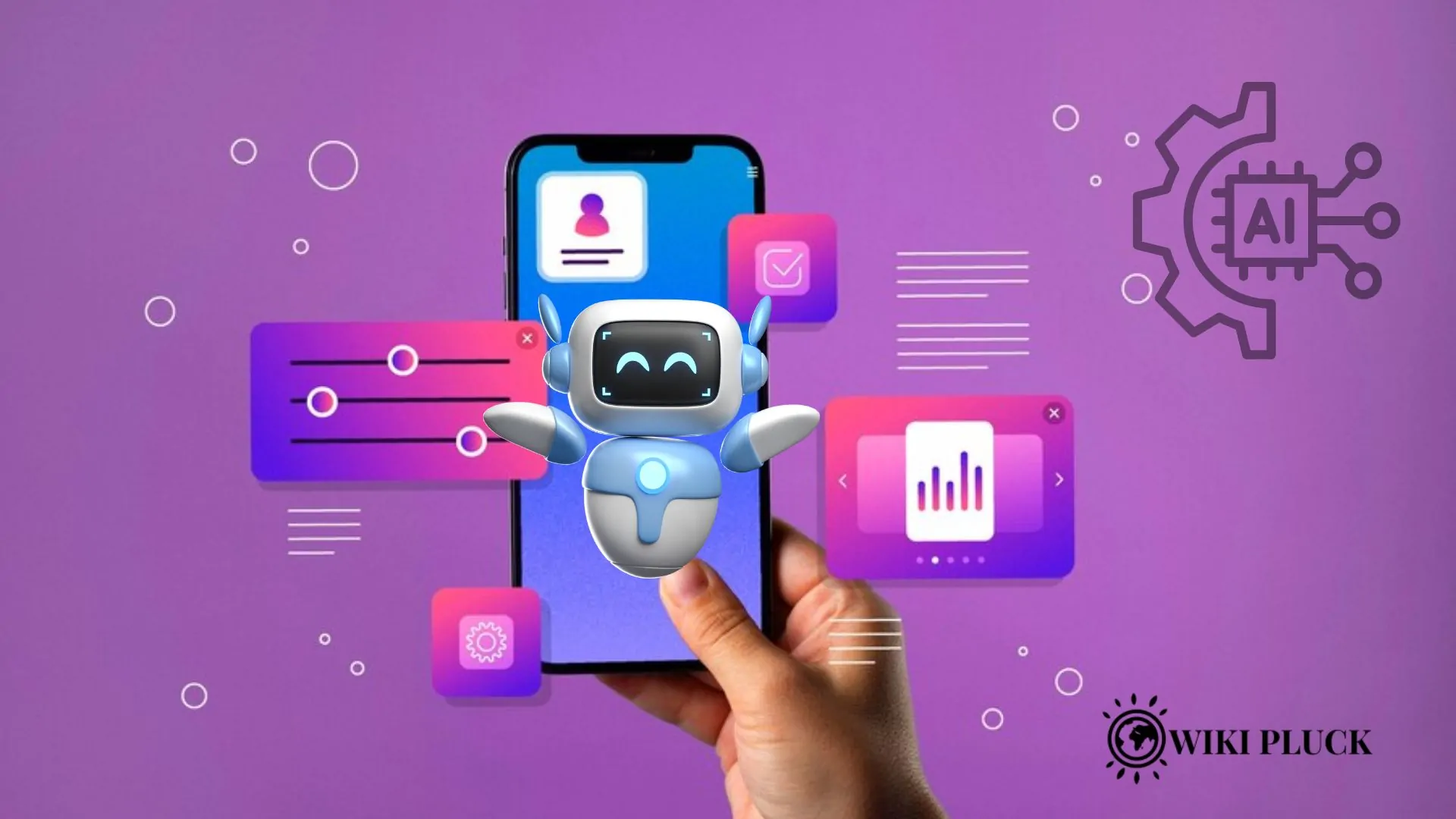How AI is Changing Mobile App Development
With advanced algorithms powered by AI, machine learning (ML), and natural language processing (NLP) making rapid strides, mobile apps are making ever smarter, more specifically tailored in short, genius. As we approach 2025, AI is set to reshape the mobile app ecosystem by providing better user experiences, automating routine tasks, and empowering more intelligent decision-making.
The Rise of AI in Mobile Apps
No longer something out of a Sci-Fi movie, AI has become integrated into modern mobile applications. Whether it’s chatbots, voice assistants, recommendation engines, or predictive analytics software, AI has overthrown how users interact with mobile applications.
For instance, AI-optimized applications provide farmers with instant weather predictions, behind-the-scenes analysis of field conditions, and even a warning when their tractor needs maintenance. This example of AI potential is repeated in every industry.
While it is OK to turn to AI in your business to create imaginative and productive software, developers need also be snapping at the heels of the new trends if they want to compete. Here’s an examination of vital AI-driven trends that will govern mobile app development in 2025.
Also Read: How is AI helpful in personalizing mobile app experiences?
Key AI trends in mobile app development for 2025
Hyper-personalization with AI: Personalized Recommendations
AI-powered recommendation systems are turning the tables on how companies engage with users. Netflix, Spotify, and Amazon have all put AI systems into successful practice for delivering highly personalized content. By 2025, we can anticipate an even more nuanced form of personalization that uses ever-deeper learning models and new algorithmic techniques derived from human analysis.
Key Enhancements:
- AI-based predictive analysis of user needs
- Enhanced sentiment analysis and better user engagement
- Dynamic app interfaces that change with your preferences
Voice and Conversational AI: The Evolutionary Path
Voice search functions and AI-powered chatbots are increasingly common features in mobile applications. As breakthroughs such as ChatGPT and Google Bard demonstrate, AI models are evolving to have ever more speech-induced conventions that will facilitate natural interactions with mobile apps without the need for traditional text entry.
Predictions for 2025:
- Voice Searches with increased natural languages apart from the original tongue
- AI-driven customer service automation shall become more accurate
- In Smart Home and Business Applications: Voice – controlled data integration systems for IoT
AI-Powered Security and Fraud Detection
With cyber-security a number one priority for mobile app developers, Artificial Intelligence (AI)stalled security solutions have become imperative to `detecting fraudulent activities, blocking cyber intruders or even safeguarding sensitive data.
Expected Advancements:
- AI-based anomaly detection facilitates real-time evaluation of threats
- Biometric authentication using facial and voice recognition
- AI-based encryption – both user-secure and for safeguarding online communications
AI in Augmented and Virtual Reality (AV)
Incorporating AI intelligence into AR and VR applications makes possible more immersive environments and lets us complete tasks in more efficient ways. In gaming, healthcare, and educational areas, this is already happening–with AI-driven AR/VR programs created so end-users have a richer experience.
Trends to Watch:
- AI shopping advisers for virtual reality apps
- AI courseware for augmented life–the student dictates the lesson
- AI-rendered 3D content for immersive VR applications.
Also Read: 15 Key Differences Between Android App & Hybrid App Development
AI for Healthcare and Wellness Apps
In the field of healthcare, AI is becoming widespread for diagnosis, telemedicine, and also that beachhead at the interface between human and machine: personalized health tracking. For example, mobile phone apps driven by AI are helping people to keep track of their chronic diseases, achieve fitness goals, and even pick out the earliest possible signs that something might be amiss.
Future Developments:
- AI-based virtual doctor consultations, “immediate healthcare”
- Predictive analytics in healthcare for prediction of illness before symptoms show up
- AI-driven mental health chatbots, “emotional maintenance.”
AI for Fully Automatic/ Automated App Creation
For example, AI is now injecting software automatically into the app development process. When everything has to be written from the ground up, every time you create a new app, that process does nothing but slow down progress and introduce errors–especially sloppy debugging methods. AI is now giving developers means by which we can build mobile applications more accurately and in much less time.
Harbingers Of The Future:
- Assisted AI coding, “new tools of the trade for putting minds into overdrive”
- Automated app testing and machine-learned bug fixes start
- AI recommended user interface design in your favorite UI tool.
AI in the Service of Edge Computing and 5G-Powered Apps
With the advent of 5G networks, edge computing is gaining acceptance and mobile users can have their data processed in closer proximity to them. Artificial intelligence plays a crucial role in real-time deployment and decreases latency.
2025 Scenarios:
- Faster data processing via AI-based edge computing
- More realistic AR/VR experience through real-time AI calculations
- AI-driven optimization for smart city applications supported by 5G
AI in Mobile App Development: Predicting 2025 and Beyond
The next moves for AI in mobile app development will be guided by systems that can learn on their own. Here are a few visions:
- Mobile apps can function on a truly autonomous level, According to the principles of artificial intelligence, applications will be able to self-design and self-optimize their activities.
- Brains on the Net: AI brain-computer interfaces will allow users to mobile apps that function in conformity with human thought.
- When a mobile app is designed from the ground up to make use of AI, it will have the ability to create its content: video, audio, text, and others.
- A variety of mobile apps will use AI to create media like video, audio, text, and a lot of personalized following user interests.
- The combination of AI and quantum computing will bring overwhelming processing power to mobile apps, making them highly intelligent and ultra-fast. Intelligent apps will be the result of this intersection.
Also Read: Which one is best for you Wireframing VS Prototyping?
Conclusion
By making our mobile applications more intelligent, efficient, and intelligent, AI is set to revolutionize mobile app development. From uber-personalization and AI-accelerated security to AR/VR applications, the trends of 2025 predict a renaissance in smart apps. As long as there are further advances in AI, the developers who adapt to these outlines as mobile app ecology becomes more and more complicated will continue to be competitive.
By integrating AI technologies, businesses, and application developers can create mobile apps like no other. The result is that the user has new experiences and everyone else is ahead in productivity in 21st-century digital construction.
As the driving force behind WikiPluck, I am dedicated to curating and sharing insightful knowledge across a spectrum of subjects. From technology trends to Business advice, WikiPluck strives to be a go-to resource for those seeking to enhance their understanding and make informed decisions.
Join me on this journey of discovery and enlightenment as we pluck the gems of wisdom from the vast landscape of knowledge.

